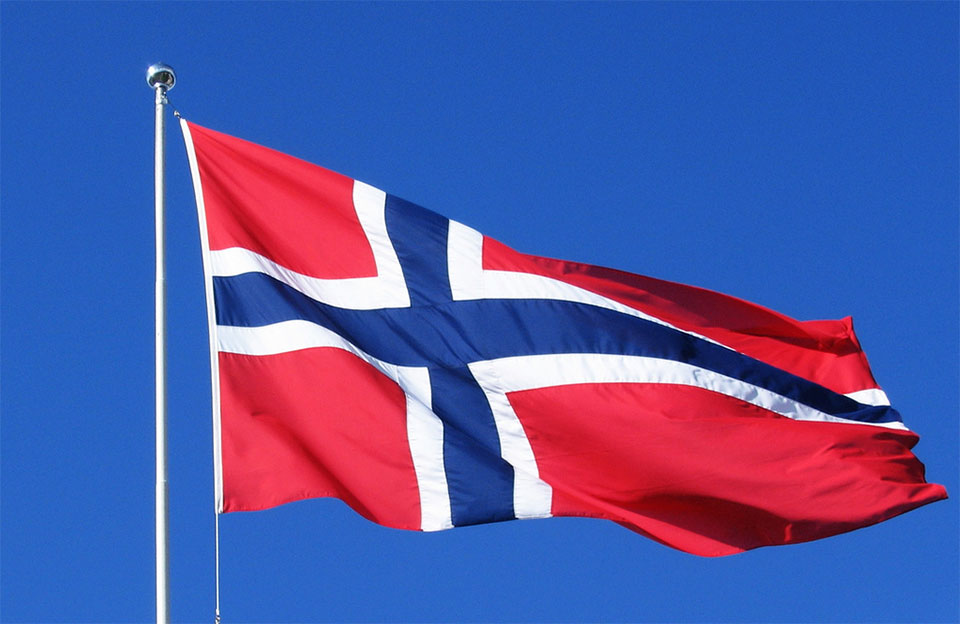Norway Backs EU Crypto Regulations While Exploring Potential CBDC
10.11.2024 13:00 1 min. read Alexander Stefanov
Norway’s central bank, Norges Bank, has backed the EU’s Markets in Crypto-Assets Regulation (MiCA) as it considers a central bank digital currency (CBDC).
Project Director Kjetil Watne noted that while MiCA provides a helpful regulatory base for Norway as an EEA member, further regulations may still be required for financial stability.
Although a final decision on a CBDC hasn’t been made, Norges Bank is assessing how it could coexist with cash and digital assets while addressing gaps in decentralized finance oversight. Norway’s recent involvement in “Project Icebreaker” examined cross-border CBDC use, though details remain to be worked out.
On privacy, Norges Bank reassured that it wouldn’t monitor individual transactions, and any CBDC would comply with anti-money laundering rules.
Meanwhile, some concerns surround MiCA’s mandate for stablecoin issuers to hold substantial reserves in European banks, potentially exposing these reserves to vulnerabilities due to banks’ lending practices, as noted by Tether CEO Paolo Ardoino. MiCA is set to take effect on December 30.
-
1
Fiserv to Launch FIUSD Stablecoin Across Its Massive Banking Network
23.06.2025 21:00 1 min. read -
2
Mastercard Integrates Chainlink to Power Direct Crypto Access for Cardholders
25.06.2025 18:00 1 min. read -
3
BIS Slams Stablecoins, Calls Them Ill-Suited for Modern Monetary Systems
26.06.2025 9:00 1 min. read -
4
GF Securities Becomes First in Hong Kong to Issue Tokenized Securities On-Chain
27.06.2025 20:00 2 min. read -
5
Robinhood to Launch Tokenized Shares of OpenAI and SpaceX for European Users
01.07.2025 11:00 2 min. read
Here is When the U.S. House Will Vote on Key Crypto Bills
Following the passage of President Donald Trump’s sweeping tax and spending bill, House Republicans are now setting the stage for a major push on cryptocurrency legislation.
SEC Chairman With Important Comments on Regulation, Crypto, and Trading
U.S. Securities and Exchange Commission (SEC) Chairman Paul Atkins has emphasized the agency’s continued focus on investor protection, addressing insider trading, market manipulation, and the evolving landscape of cryptocurrency regulation.
Arizona Governor Vetoes Bill, Related to State Crypto Reserve Fund: Here Is Why
Arizona Governor Katie Hobbs has officially vetoed House Bill 2324, a legislative proposal that aimed to create a state-managed reserve fund for holding seized cryptocurrency assets.
SEC Explores New Fast-Track Process for Token-Based ETFs
The U.S. Securities and Exchange Commission (SEC) is in the early stages of developing a standardized listing framework for token-based exchange-traded funds (ETFs), according to a July 1 report by journalist Eleanor Terrett.
-
1
Fiserv to Launch FIUSD Stablecoin Across Its Massive Banking Network
23.06.2025 21:00 1 min. read -
2
Mastercard Integrates Chainlink to Power Direct Crypto Access for Cardholders
25.06.2025 18:00 1 min. read -
3
BIS Slams Stablecoins, Calls Them Ill-Suited for Modern Monetary Systems
26.06.2025 9:00 1 min. read -
4
GF Securities Becomes First in Hong Kong to Issue Tokenized Securities On-Chain
27.06.2025 20:00 2 min. read -
5
Robinhood to Launch Tokenized Shares of OpenAI and SpaceX for European Users
01.07.2025 11:00 2 min. read


